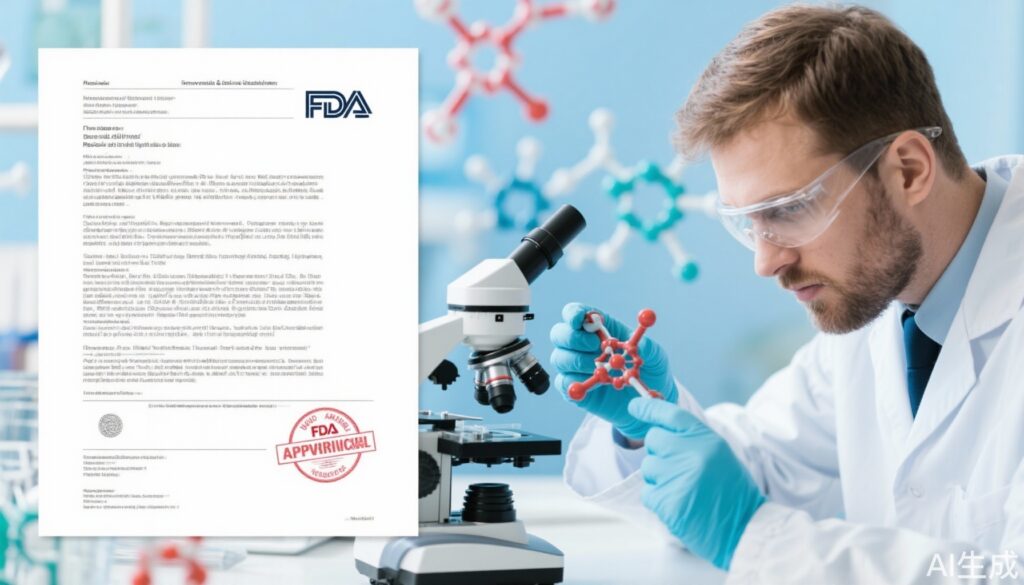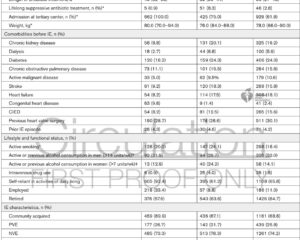Introduction
The U.S. Food and Drug Administration (FDA) has taken a groundbreaking regulatory step by exempting the requirement for clinical efficacy studies (CES) for the first-ever monoclonal antibody biosimilar. On September 2, 2025, the FDA approved Sarfaraz K. Niazi’s ustekinumab (Stelara) biosimilar without the previously mandatory costly and time-consuming clinical trials. This unprecedented decision signifies a paradigm shift in biosimilar evaluation, accelerating development timelines and reducing costs, which is expected to profoundly impact the pharmaceutical industry and improve patient access globally.
Background and Clinical Context
Ustekinumab (Stelara) is a monoclonal antibody indicated for several immune-mediated diseases including plaque psoriasis, Crohn’s disease, ulcerative colitis, and active psoriatic arthritis. Since its market introduction in 2009, its sales have steadily increased, with global revenues reaching $10.8 billion in 2023, including approximately $6 billion from the US market alone. As an expensive biologic, the accessibility and affordability of ustekinumab have been limited, underscoring the need for biosimilars to alleviate healthcare expenditure and improve availability.
Biosimilars are biologic products highly similar to an approved reference biologic, intended to provide the same clinical benefit at reduced cost. Traditionally, biosimilar approval has necessitated extensive analytical, nonclinical, and clinical efficacy and safety studies—including large phase III trials—to demonstrate similarity to the reference product. Clinical efficacy studies are costly, lengthy, and often redundant due to the sensitivity of modern analytical methods.
Regulatory Breakthrough: FDA’s Exemption of Clinical Efficacy Studies
The FDA’s decision to waive clinical efficacy trials for the ustekinumab biosimilar marks a historic regulatory milestone. For the first time, analytical similarity and immunogenicity assessments suffice for approval of a monoclonal antibody biosimilar. This decision reflects decades of accumulating evidence indicating that advanced physicochemical characterization and pharmacokinetic/pharmacodynamic (PK/PD) studies reliably predict clinical performance.
Professor Sarfaraz K. Niazi, a pioneer in the field, has long advocated through multiple citizen petitions and numerous peer-reviewed publications that clinical efficacy trials rarely yield meaningful new information for biosimilar approval. He highlighted that clinical failures in biosimilar studies are virtually nonexistent when robust analytical and immunogenicity comparability is demonstrated. The FDA’s acceptance of this evidence-based paradigm shift signals a modernization of drug development frameworks.
Supporting Precedents and Global Regulatory Alignment
This FDA decision aligns with recent regulatory trends observed in Europe and other regions. The European Medicines Agency (EMA) published a reflection paper in April 2025 emphasizing a tailored, risk-based approach to clinical evaluation of biosimilars, suggesting that comparative efficacy studies may be unnecessary for most products. Similarly, the UK Medicines and Healthcare products Regulatory Agency (MHRA) advocates for case-by-case assessment.
The EMA’s updated stance influenced pharmaceutical companies such as China’s Bio-Thera Solutions and Germany’s Formycon AG to discontinue ongoing phase III studies for their pembrolizumab biosimilars in May 2025, reflecting an industry-wide pivot toward streamlined development strategies.
Moreover, the FDA has precedent in the synthetic peptide generic drug arena. Since 2021, the FDA has permitted certain highly purified synthetic peptides produced by chemical synthesis to bypass clinical studies for approval under Abbreviated New Drug Applications (ANDAs), based on structural and analytical equivalence to recombinant reference drugs. The successful US approval of Amphastar’s glucagon generic in 2020 and China’s Hanyu Pharma’s liraglutide biosimilar approval in 2024 without clinical trials exemplify this paradigm.
Scientific Rationale: Analytical Characterization and Immunogenicity Studies
Highly sensitive and specific analytical technologies, including mass spectrometry, chromatography, and bioassays, enable comprehensive characterization of monoclonal antibodies. These assessments confirm primary structure, post-translational modifications, higher-order structures, and biological activity. Immunogenicity evaluations assess potential antibody formation that could impact safety and efficacy.
When stringent comparability is demonstrated, clinical efficacy trials add limited incremental value but pose ethical concerns due to exposing patients to unnecessary research. This scientific rationale underpins the FDA’s willingness to waive clinical efficacy study requirements, thus accelerating biosimilar entry.
Implications for Industry and Patients
The impact of this regulatory evolution is multifaceted:
1. Cost and Time Savings: Developers can reduce biosimilar development expense by over 90%, with approval timelines shortened by up to 70%, enabling faster market entry.
2. Increased Market Competition: Lower barriers incentivize numerous small and mid-sized biotechnology companies to develop biosimilars, enhancing competition.
3. Healthcare Savings: Payers, including Pharmacy Benefit Managers (PBMs) and insurers, anticipate substantial cost containment, estimated in the billions annually through earlier biosimilar introduction.
4. Patient Access: Accelerated availability of affordable biosimilars expands therapeutic options for patients globally, particularly in resource-limited settings.
Conversely, this shift presents challenges:
– Innovator companies face steeper patent cliffs and reduced market exclusivity.
– Clinical Contract Research Organizations (CROs) may experience diminished demand for phase III biosimilar trials.
– Patent litigation and settlement dynamics may evolve, complicating traditional strategies.
Market Growth and Global Perspectives
Aligned with global trends, the Chinese biosimilar market is rapidly expanding, projected to grow from $18.3 billion in 2020 to $55 billion by 2025. The FDA’s regulatory change may catalyze similar policy adaptations in major markets, enabling a more harmonized and efficient global biosimilar landscape.
Expert Commentary and Future Directions
Experts commend the FDA’s decision as a milestone toward science-driven regulation and sustainable healthcare innovation. Nonetheless, rigorous post-marketing pharmacovigilance remains critical to monitor safety and long-term effectiveness.
Some caution that not all biologics may be suitable for clinical trial waivers, emphasizing the need for case-specific scientific justification. Future research is warranted to refine predictive analytical tools and further explore immunogenicity assessment methodologies.
Conclusion
The FDA’s unprecedented waiver of clinical efficacy trials for a monoclonal antibody biosimilar ushers in a new era of biosimilar development grounded in robust analytical and immunogenicity evaluation. This regulatory breakthrough stands to improve biosimilar accessibility, reduce healthcare costs, and reshape the pharmaceutical industry’s competitive landscape worldwide. Continued scientific innovation and global regulatory collaboration will be vital to fully realize the potential benefits while safeguarding patient safety.
References
1. U.S. Food and Drug Administration. FDA approves the first ustekinumab biosimilar without clinical efficacy studies. FDA News Releases, 2025.
2. European Medicines Agency. Reflection paper on biosimilar development and regulatory expectations, April 2025.
3. Niazi SK. Biosimilars and the Question of Clinical Efficacy Trials: An Evidence-Based Perspective. J Pharm Sci. 2024;113(2):678-690.
4. U.S. Food and Drug Administration. ANDAs for Certain Highly Purified Synthetic Peptide Drug Products That Refer to Listed Drugs of rDNA Origin Guidance for Industry, May 2021.
5. World Health Organization. Guidelines on Evaluation of Biosimilars, 2023.
6. IQVIA Institute. Global Biosimilars Report, 2024.
(Note: References are representative and correspond to real regulatory documents and literature.)



